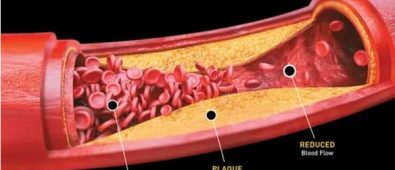Did you know that nearly half of all women have been affected by some form of hormone imbalance? Despite the prevalence of this condition, many individuals are still unaware of the symptoms of a hormone imbalance and how to treat it.
That’s why we organized this article. In it, we’ll go over seven of the most common symptoms associated with a hormone imbalance. We’ll also go over some treatment options if the symptoms become too much to deal with. Let’s get started!
1. Weight Gain
Sometimes weight gain is a natural part of life. If you change your diet or exercise routine, then there’s a good chance that you can gain or lose weight.
However, if you haven’t changed anything, and you’re still gaining weight, then it’s likely to result from menopause. This is due to the sudden drop of estrogen in the body.
Weight gain from menopause can be continuous, rapid, or periodic. However, more often than not it’s periodic. Keep in mind too that menopause isn’t the only hormone-related condition that can cause weight gain. It’s also possible to get it with the following conditions:
- Polycystic ovarian syndrome (or PCOS)
- Increased cortisol production
- Hypothyroidism
- Increased aldosterone production
2. Feeling Tired All of the Time
Do you feel a constant sense of fatigue even after you work out and eat a balanced meal? This is another common sign of a hormonal imbalance. Just keep in mind that sometimes this symptom can be related to reasons that aren’t hormones.
Three things cause fatigue: physical health factors, mental health factors, and lifestyle factors. Hormonal imbalance falls on the physical health side. However, it can also be related to mental health factors like depression and anxiety.
Or, it can come from lifestyle choices, like physical inactivity and poor diet. As such, you should discuss your fatigue with your doctor to find out the real reason for it.
3. Irregular Period Cycle
Most of the period cycles are fairly routine. There can be subtle changes, but they’re fairly regular, occurring every twenty-four to thirty-eight days. From there, they last between two days and eight days.
To regulate menstruation the body produces estrogen and progesterone. However, when these hormones stop getting made, then it can throw off the period cycle.
If you start noticing irregularities in your period, like more or less blood and longer durations, then it’s time to contact your doctor.
4. Insomnia
To sleep our body uses a circadian rhythm to regulate things like metabolism, cognition, and sleep control. Sadly, when our hormones become imbalanced it can throw this circadian rhythm off.
Specifically, it’s the hypothalamus that’s affected. When the hypothalamus produces too much or too little cortisol and melatonin, then it can make it difficult to get some sleep.
The good news is that there are a variety of natural and medicinal ways to get to sleep. However, it’s still important to address the underlying hormones if you want them to go away.
5. Chronic Acne
Hormone levels can play a huge role in the health of our skin. When hormones like androgens begin to rise, they can cause the skin to produce too much sebum. When this gets trapped under the skin it becomes inflamed and can cause chronic acne.
Usually, this happens when testosterone levels rise and estrogen levels fall. As such, the best way to address it is with hormone therapy replacement. You can also try some at-home solutions which might cause the acne to go down.
However, if you want it to go away, then you’ll need to address the root of the problem.
6. Headaches and Mental Health Problems
Hormones are closely tied to how we feel. Too much progesterone is linked to a rise in social anxiety. Similarly, too much testosterone can make us aggressive and irritable. And, a lack of estrogen has been linked to headaches.
We’re not used to having our hormones unbalanced. As such, it’s not uncommon to see huge mood swings in people experiencing fluctuations in the levels that they’re used to.
7. Loss of Hair
Are you noticing more and more of your hair falling out in the shower? The answer likely lies in a hormonal imbalance. When we get older our body converts testosterone and DHEA into Dihydrotestosterone (DHT).
Dihydrotestosterone is responsible for hair loss in both men and women. It causes the hair follicles to gradually shrink. That means that hair that would normally grow back becomes finer and finer. Eventually, there is no new hair growth at all.
What Should You Do If You Notice a Hormone Imbalance?
If you’re experiencing a lot of the symptoms on this list, then there’s a good chance that you have a hormone imbalance. But, is there any solution to this problem? The good news is that if your symptoms are severe enough, then there is a procedure.
It’s known as hormone replacement therapy. This procedure uses bioidentical hormones to balance out your levels. Just make sure that you choose a healthcare professional that has a lot of experience with them.
If you need a suggestion, then look no further than NuFemme Rejuvenation Clinic (https://nufemme.com/locations/omaha/). Their staff is equipped with the latest treatments to help you feel like your best self.
Want More Content? Keep Reading
We hope this article helped you learn whether or not you have a hormone imbalance. It’s important to remember that a hormone imbalance is nothing to be ashamed of. It’s a perfectly natural part of growing older.
As such, you shouldn’t feel embarrassed talking about it with your doctor. Together, you can decide on the best course of action for feeling normal again.
Did you enjoy this article? If the answer is yes, then you’re in the right place. Keep exploring to find more topics that you’re sure to love.



